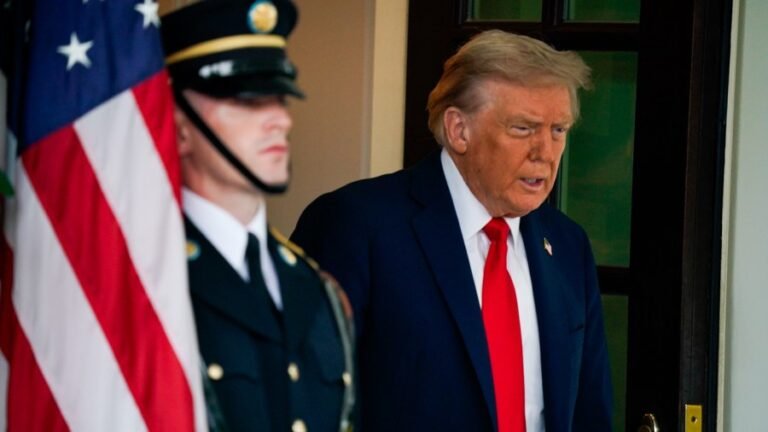
America’s service members take a solemn oath to defend us from threats abroad, even if that means making the ultimate sacrifice. In return, we honor President Lincoln’s directive “to care for him who shall have borne the battle and for his widow and his orphan.” Today, we extend that promise also to the women who have also borne the battle.
Unfortunately, a new initiative from the Trump administration would inadvertently break that promise and jeopardize veterans’ health, even though that’s not President Trump’s intent.
Trump wants to save all patients, whether current service members, veterans and lifelong civilians, money on prescription medicines. His recently proposed most favored nation policy would tie U.S. drug prices to the lower prices paid in other countries.
But by capping drug prices at the artificially low levels abroad, rather than compelling other countries to pay fair-market prices for medicines that are overwhelmingly discovered in America, the proposal would negatively affect America’s biotech industry.
That wouldn’t merely cede our global leadership to China and undermine our national security. It’d also jeopardize the health of veterans, who face heightened risks of certain complex diseases.
To understand the problems with most favored nation, it helps to look at how drug development works. Every new drug approved is the product of a long and costly research and development process that takes over $2 billion and more than a decade on average.
Innovative companies depend on market-based pricing to recover those massive investments. And because the U.S. is the largest developed country that permits market pricing, we have become the hub of global medical innovation.
Over half of global investment in life science research and development comes from U.S.-based companies.
Under most favored nation, however, that investment would crater. By importing the same artificial price limits used by foreign governments, most favored nation would force companies to slash research and development efforts to remain financially viable.
That would put patients across the country at risk, but particularly veterans, who are more likely to suffer from certain chronic conditions.
Consider mental health. In 2020, more than a quarter of veterans were estimated to be struggling with mental illness or substance use disorder.
Up to 20 percent of veterans who have been deployed eventually experience post-traumatic stress disorder, and up to 15 percent experience depression.
Similarly, many veterans face an increased risk of cancer and other physical ailments. Veterans who were exposed to burn pits in the line of duty are at higher risk of developing pancreatic cancer, among others, which has the highest mortality rate of any major cancer.
Vietnam War veterans exposed to Agent Orange have a higher likelihood of developing non-Hodgkin’s Lymphoma, lung cancer, prostate cancer and Parkinson’s disease — a debilitating nervous system condition with no known cure. Veterans are counting on pharmaceutical researchers to discover cures for these conditions. But those drugs won’t be developed here under a European-style price control regime.
In fact, if they’re developed at all, it will likely happen in China, which would be catastrophic for U.S. national security. The Chinese Communist Party has made life sciences a strategic priority, pouring state resources into clinical research, manufacturing and drug development.
Today, Chinese companies account for nearly a third of new clinical trials, up from just 5 percent in 2014 and barely behind the U.S.
Price controls under a most favored nation policy would enable China to surpass us. Over time, all American patients, including veterans, could come to rely on state-backed Chinese firms for cutting-edge treatments and essential medicines.
That would pose an unacceptable threat to our national security.
Fortunately, Trump can keep our veterans healthy and honor their contributions to our country and still lower drug costs. For starters, he could reduce the power of middlemen, like pharmacy benefit managers, which negotiate drug prices on behalf of insurers. Another promising approach would be to address foreign free-riding through trade negotiations. Rather than importing innovation-stifling drug prices from abroad, President Trump should pressure foreign countries to pay fair market rates.
These ideas could lower prices at home without collapsing the global medicine pipeline.
Trump cares deeply about America’s veterans. He recently issued an executive order designed to improve care at the Veterans Administration. But his push for most favored nation pricing would unintentionally put these heroes, and generations of future service members, in harm’s way.
Veterans have already sacrificed for America. They deserve a drug pricing policy that puts their health first, not one that forces them to sacrifice all over again.
Anthony J. Principi was Secretary of Veterans Affairs from 2001 to 2005.






